Skroutz Buyers Protection
Ρωσική επανάσταση 1900-1927Code: 12925747
- Author: Robert Service
- Publisher: Okto
- Μορφή: Soft Cover
- Έτος έκδοσης: 2017
- Αριθμός σελίδων: 245
- Κωδικός ISBN-13: 9786185077310
Robert Service








History Books
The Penguin History of Modern Russia : From Tsarism to the Twenty-first Century
from 23,40 €Added
Similar products
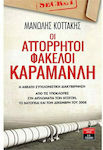

 Top rated
Top rated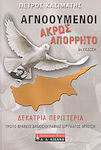
Political Books
Αγνοούμενοι: Άκρως απόρρητο, Δεκατρία περιστέρια: Οι τελευταίοι επιζώντες αγνοούμενοι της Κύπρου: Οι μυστικές αποστολές σωτηρίας τους
Ad from Xryso FteroAdded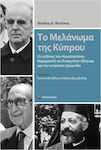
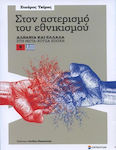
Political Books
Στον αστερισμό του εθνικισμού, Αλβανία και Ελλάδα στη μετα-Χότζα εποχή
from 14,44 €Added Top rated
Top rated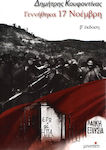
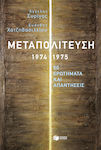
Political Books
Μεταπολίτευση 1974-1975 50 Ερωτήματα Και Απαντήσεις, 50 Questions and Answers
Ad from SelefaisAdded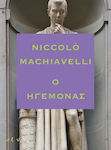
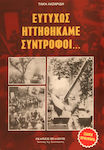

All shops
Prices are calculated for:Malta, Other Payment Options
- 11,63 €
- 11,63 €
- 12,40 €
- 10,85 €
Description
When this book was first published in 1986, it had two main objectives. Studies on the Russian Revolution were somewhat unequal. The authors had focused their attention on the year 1917, while showing reduced interest in the decades before and after the Revolution. By covering the period from 1900 to 1927, I wanted to show that we can better understand the Revolution by expanding the chronological range of research. During that period, it was also popular to write about politics, economics, and society as if they were completely different things. There was a pressing need to bring things back together. From the late 1980s, many new information became available in the USSR, as the Soviet communist leadership relaxed the restrictions it had imposed on access to written and other sources. The second edition of the book included such material; the third edition took into account archival findings, as well as the dialogue of historians in the 1990s. This fourth edition retains the basic text, suitably revised, as well as the original structure and argument. However, the content has been modified in light of new information and perspectives. Another change is the addition of a general introduction, which complements the preface of each chapter. The Russian Revolution remains in the early 21st century an equally controversial issue as it was at the time it occurred. This is something that will not change.
The Russian Revolution triggered a political earthquake. In February 1917, the Romanov monarchy was shaken; in March, it fell. This fact alone had global significance. Russia and the other Allies were involved in the Great War against the Central Powers. The Provisional Government, a fluid alliance of liberals and socialists, sidelined Emperor Nicholas II and his ministers, proclaimed universal political rights, and took responsibility for national defense. It struggled to survive amidst confusion and months of political conflicts. In October, it succumbed and power was seized by Vladimir Lenin and the Bolsheviks. This second revolution had even greater significance than the first. The Bolshevik Party advocated a more radical mix of socialism than any socialist minister of the Provisional Government - and for this reason, the Bolsheviks had also begun to call themselves communists, to distinguish themselves from their more cautious opponents. Decades of mobilization and organization in Europe and North America had not yet produced a government composed exclusively of socialists. The Bolsheviks in Russia realized that they were at the forefront of the forces of revolutionary transformation.
If it were only about the events of October 25th on the streets of Petrograd, the event would not be of international interest. However, within a few weeks, the major industrial cities of the former Russian Empire had come under the control of a government led by the Bolsheviks. Decrees were issued overturning the social order. The "transition to socialism" was announced, and the Bolsheviks established a dictatorship to achieve it. Few abroad, but also in Russia, believed that they would remain in government for long.
Even the leaders of the Bolsheviks did not have high expectations for their revolution, as they did not expect to survive without support from elsewhere. They hoped to be saved by a "European socialist revolution". However, although they won the Civil War that followed their seizure of power, they proved unable to spread the revolution to the rest of Europe. While they consolidated their regime, they were forced to recognize that Russian society and its economy could not be transformed overnight. They were proud, however, that they had made a start. They presented themselves as an example to be imitated by all left-wing socialists. They were building a new type of society on the former empire. They believed that they were paving the way to a new and better modernity. "History" was on their side. This was the way that communists and sympathizers of the Russian Revolution and its achievements saw it. Lenin was their hero. Even those who found flaws in communist theory and practice continued to judge the USSR on its own terms. They prioritized collective rights over individualism and individual economic interests. What value did political freedom have if it did not ensure the widespread availability of food, healthcare, education, and housing? Generations of commentators, until the collapse of communism in the USSR in the period 1989-1991, insisted that the Soviet regime deserved the benefit of the doubt.
The discussion continues. The Russian Revolution was one of the events that shaped recent world history. It had a direct, intense impact that lasted until World War II and beyond. Until 1945, the USSR was the only communist state (except for Mongolia, where it had installed a government of men). The seizure of power in October 1917 encouraged the creation of Marxist-Leninist parties in Europe, North America, and elsewhere. The desire to prevent the spread of Soviet communism influenced the establishment of fascist and right-wing authoritarian governments. Despite great adversity, the USSR defeated the Third Reich in World War II. Communism triumphed, rapidly expanding in Eastern Europe and China, eventually covering one-fourth of the Earth's surface. The new communist states, despite their national differences, largely imitated Soviet order in terms of politics, institutions, and ideology. In the Cold War, which began in the late 1940s, two major power blocs led by the USSR and the US came into conflict. Global peace was threatened until the late 1980s, when President Ronald Reagan and General Secretary Mikhail Gorbachev reached an agreement between the two countries. For decades until its dissolution in 1991, the Soviet order that emerged in October 1917 influenced politics on all continents.
Specifications
- Format
- Soft Cover
- Number of Pages
- 245
- Publication Date
- 2017
Important information
Specifications are collected from official manufacturer websites. Please verify the specifications before proceeding with your final purchase. If you notice any problem you can report it here.
















































